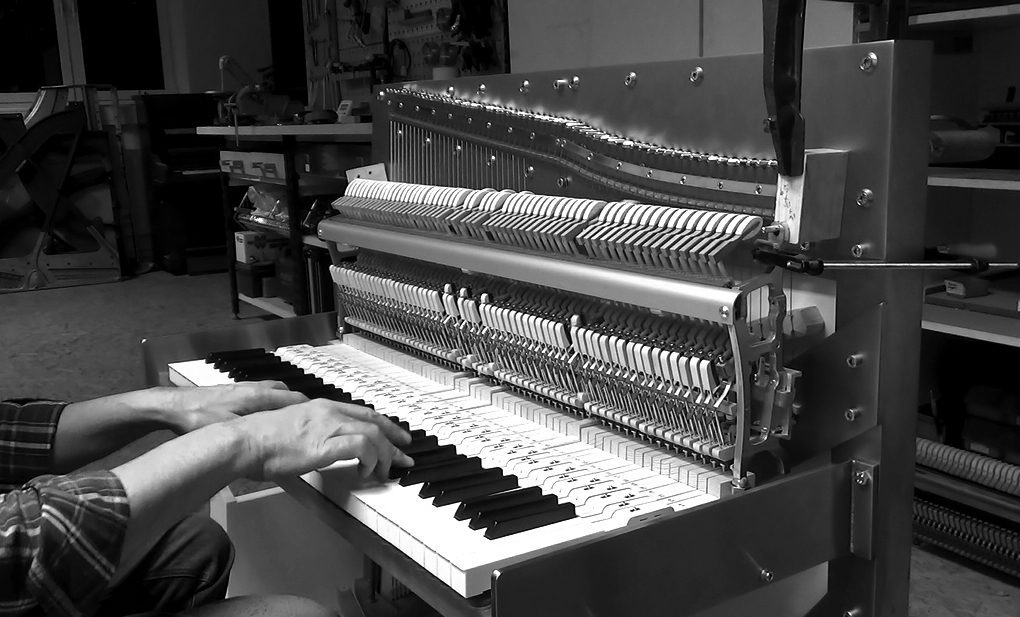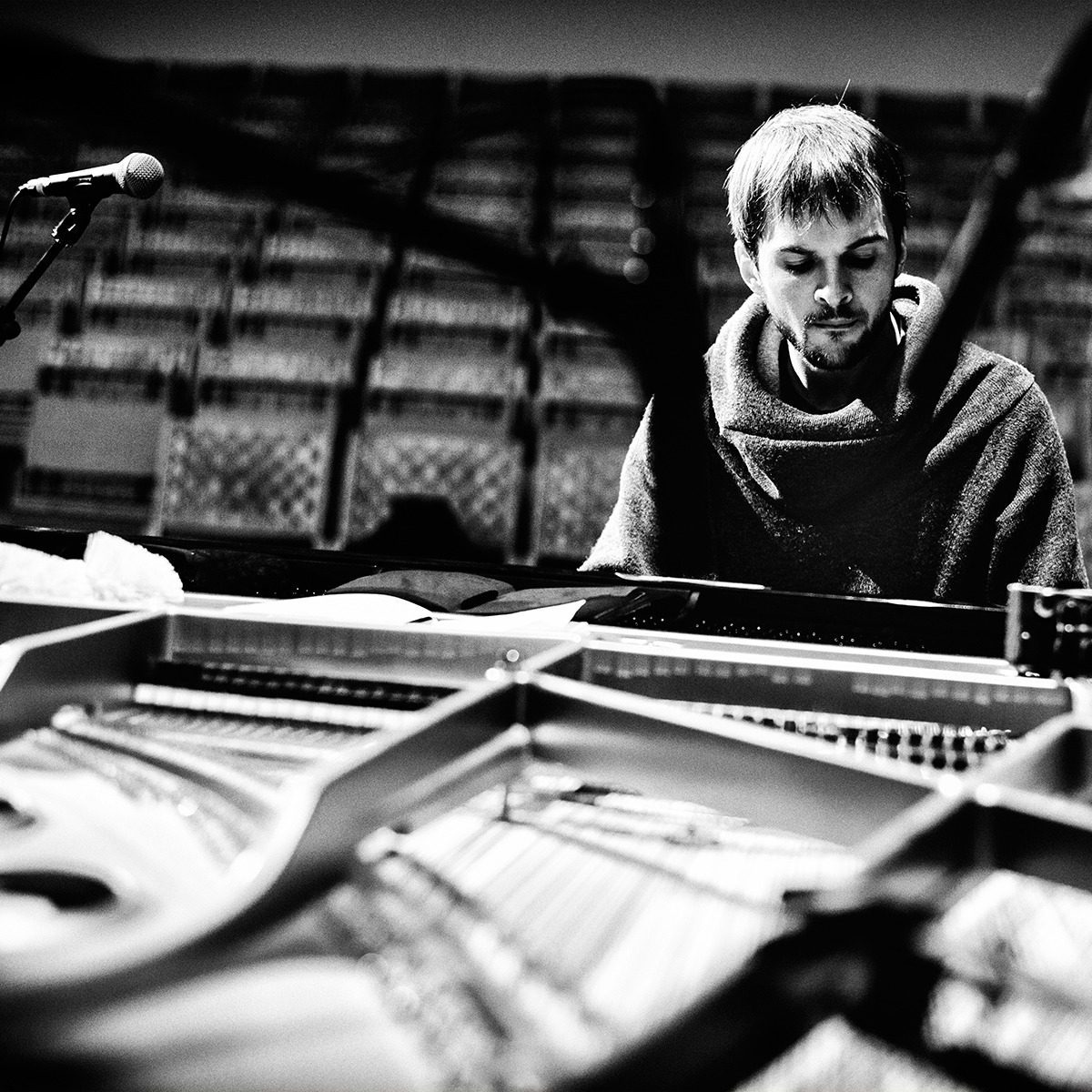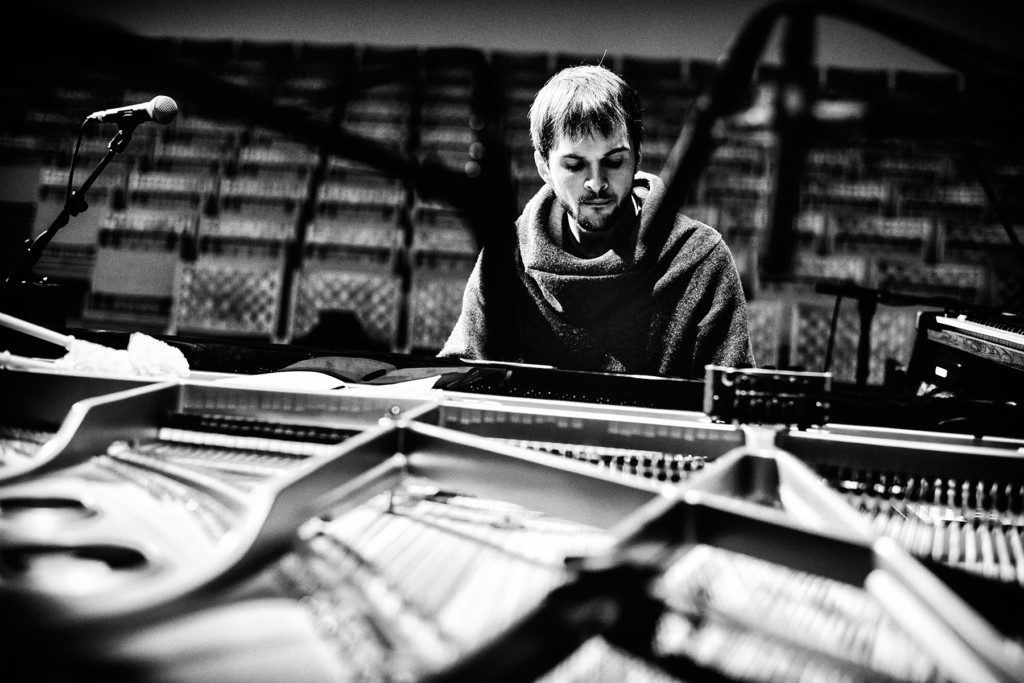ONLY NOISE: Air Piano

I have considered writing this many times – but I never felt it was ready. It would be ready, I thought, when my mastery of the piano was complete. Or more realistically, when my proficiency at the piano was deemed certifiable. Certifiable by whom, I was never sure. I now realize how silly that would be. The story would never be told.
Two years ago, during a period of prolonged illness, I spent two months in my native Washington State. Words minced: it was a difficult time. A time in which there were few relaxing moments. I was preoccupied, even obsessed with the state of my health, as were the family members who surrounded me in a big, fuzzy love net. One such family member was my nephew-in-law, L, who to this day feels more like a smarter little brother. During some of the most trying moments of my condition, he would by force of habit or tremendous intuition, settle at his family’s piano and begin to play. Improvise, really.
L has been playing since he was tiny, as the framed photo atop his family’s piano depicts. In it he sits – no older than 4 or 5, examining the keys with his grandfather. Due to his musical education, as well as an abnormally elevated intellect, L is a bit of a virtuoso on the keys. He sits at the piano when no one is really paying attention – when everyone is absorbed in work, or a book, or a Twitter hole. When it is the most quiet.
Yet during intensified phases of my malaise, when everything was far from silent, his stunning melodies would split the chaos and fill the room with loveliness. The sound would completely pacify me. It entranced me. L’s compositions are entirely improvised, but somehow sound like oeuvres that have been labored over for months. At the same time they sound effortless. The astounding thing about these arrangements is that they materialize from thin air. The devastating thing is that they are gone as swiftly as they are played – never recorded on paper or garage band.
L’s playing so moved me during those months; I wished I could hire him as my in-house pianist. Though I would never get anything done if he accepted the job. Piano hypnotizes me. If L begins playing while the rest of us read or knit, my activity halts when the first key is struck. My eyes slowly close. My chin drifts upward as if waiting for some higher revelation. I am bewitched.
It wasn’t simply a newfound fixation with piano music that sprouted from my time at home. There also grew an intense desire to play the piano – to command the magical instrument itself.
The latter infatuation lay dormant for months after I returned to New York. I can’t remember if I consciously thought about learning piano. But when I heard the dizzying compositions of Nils Frahm for the first time, I knew that was it. I spent my lunch breaks scouring Craigslist for keyboards, and an affordable teacher. Despite my highfalutin cravings for something fancy, like a Fender Rhodes or a Juno, my budget afforded me a $200 Kurzweil Ensemble Grande Piano, which is a pretty rudimentary model. Within two days of hearing Frahm’s music, the Kurzweil was mine. She’s a sturdy one, and I named her Girtha on the account that she weighs, oh, about 500 pounds.
Locating a compatible instructor seemed even more important; you only pay for the keyboard once, whereas each lesson will strip you of money. I came across a guy named Andrew. He was one of the few teachers who included pictures in their listing, which gave me a sense of ease. I could size him up a bit first. He looked lanky, and a bit like Tom Verlaine from Television – minus the whole heroin-chic thing. At $50 per session the price was right, plus, a bonus: he conducted lessons out of the gorgeous San Damiano Mission in Greenpoint. I was eager to start. New hobbies are a love of mine yes, but I also knew that learning piano would make me a better music journalist…because then I’d be a failed musician too.
On a sweltering August Wednesday, we began.
Andrew was in his early thirties, and hip to the music canon, but he eschewed all of the arrogance often associated with such traits. To pay rent he played church services and taught, the rest of his time spent on various musical projects and writing plays. He was patient, genuine, and kind – albeit a touch awkward. I constantly tried to distract from my musical inadequacies with jokes. This never worked.
I remember on one particular occasion Andrew was demonstrating a technique, and began playing Kendrick Lamar’s “Alright” on the church piano to illustrate his point.
“You working that one up for church?” I asked.
“Whaa?” He looked genuinely concerned. When I assured him it was merely a joke, he laughed nervously and turned back to our lesson.
At first I learned piano quickly. The rush of a new pursuit – and a determination to achieve maestro status by the time I was an old lady – had me practicing for one to two hours daily. I was getting the basics down, and nailing my first song (Nick Cave’s “Into My Arms,” which ain’t that hard, by the way). I wasn’t quite a pianist yet, but I sure was learning piano.
But within months, practicing piano suffered the same fate of every discipline I’ve ever attempted, bar writing – it became a chore. I would halfheartedly cram the night before my lesson and resentfully play pages from the piano book; I much preferred improvisation, which always felt better than it sounded. At my lessons I would use tricks to skip playing from the book, as my sheet music literacy was declining. Asking a lot of questions typically worked.
I became nervous even before practicing at home – afraid my fingers would betray my ears. What was once cathartic and inspiring had become a little prison, built with the absurd standards I hold for myself.
This past August I got laid off from the desk job I hated. It was a bittersweet thing. I was tickled to say buh-bye to the 9-5, but that also meant cutting all recreational spending: i.e., piano lessons. I’d stopped regularly practicing sometime before, but swore to myself that the second I could afford it I would get back in the habit and recommence classes. Andrew understood, but warned me that he might be teaching elsewhere when we next met.
“The friars are renting the church out for concerts and events more and more, so I might have to find a new spot.”
“Wait a minute,” I pressed. “Andrew, it sounds like you’re getting gentrified out of the church!”
“HA!” echoed high to the ceilings. I’d finally gotten him to laugh.
I must admit that the most piano I have “played” since then has been air piano. It was what saved me during some rough turbulence on the last flight I took. Like many, I am terrified of flying, and usually try to knock myself out with merlot as a remedy. But, seeing as my flight was at 8am, even I felt too dignified to get tipsy.
Fortunately, the good people of Delta Airlines now have free, decent music aboard. I listened to Olafur Arnolds’ latest LP Island Songs on repeat, as well as a Bill Evans compilation several times. The piano, once again, took me over and soothed me – especially when I fervently “played” along. I kept my performance underneath my blanket however; just so other passengers wouldn’t think I was a complete nutter.
When I was recovering in Washington, before my lessons ever began, L would sometimes invite me to join him at the piano. “Just play the white keys,” he would say as I fumbled with the naturals. “What happens when I play the black keys?” I’d strike a sharp before he could answer, wincing at its sourness. Eventually I shied away, feeling far too vulnerable in front of someone who has been playing most of his life.
You’d think after a year of piano lessons I’d be less timid, but nothing has changed. My sister constantly offers the piano for me to practice when I visit. A songwriter and music teacher, sis claims that no one in the house minds, and that she uses it for “mediocre piano hour” all the time.
But I can’t do it. I become rigid, stewed in anxiety. I am not proficient. I am not a performer. And I’m certainly not a virtuoso.
But I can play one hell of an air piano.




